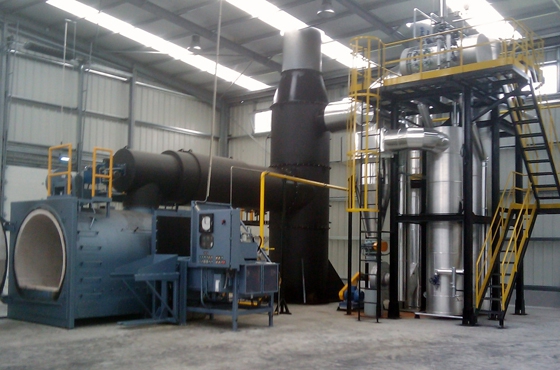Lebanon and the European Union launched two programs to support and strengthen Lebanese municipalities manage solid waste, a partnership expected to directly affect at least 2 million people from 280 municipalities across the country. “Lebanon suffers from a severe lack of adequate infrastructure to treat solid waste, stressed by extra pressures to the system from the high number of refugees and the closure of the Naameh landfill last summer,” Lassen said.
Agreements were signed during a launch ceremony at the Ministry of Administrative Development at Starco Building in the presence of Administrative Development Minister Nabil de Freige, EU envoy Christina Lassen, representatives from the Interior Ministry, the Environment Ministry, the Council for Development and Reconstruction and heads of the municipalities, as well as experts on waste management.
The programs, dubbed SWAM I and SWAM II, aim to create and improve waste management infrastructure throughout a country that has long been undermined by both the Syrian and the solid waste crises.
“Prior to the outbreak of the [garbage] crisis there were 960 makeshifts dumps, but today they are over 4,000,” said de Freige in a joint news conference with Lassen.
Garbage has piled up in Beirut and Mount Lebanon when the Environment Ministry closed the Naameh landfill south of Beirut last July without securing a substitute.
The project aims to build waste management facilities throughout Lebanon and increase the basic services and equipment in various municipalities. This will promote a decentralized approach to the garbage crisis. SWAM I and SWAM II will overall provide or widen eight sanitary landfills and eight solid waste treatments plants as well as disposal and collection equipment in the municipalities of Dinnieh, Tripoli, Koura, Zghorta, Baalbek, Nabatieh, Sidon, Tyre, Bint Jbeil, Jub Jennin, Srar and Zahle.
The estimated budget for these improvements is 35 million euros, elevating the EU’s overall assistance to Lebanon to more than 77 million euros for waste solutions since 2004.
“Cooperation between the EU and the office of the minister of Administrative Development is strong and durable, and addresses a wide variety of projects ranging from solid waste management to development of human resources and strategic development,” de Freige said.
EU-Lebanese projects have indeed been launched over the years, with the ARIA project launched in 2004. However, the goals of the new programs are expected to be achieved within the next five years, when 60 percent of the waste stream should be managed. “Combining what we have done in the past and what we can do now, we will be assisting a total of 540 municipalities over the country, more than 600 jobs will be created locally and a total capacity of 2,395 tons per day will be processed, representing 43 percent of the overall solid waste in this country,” Lassen summarized.
“We are ready to do more and look into future projects, such as supporting Lebanon’s government in long-term strategic planning on waste.”
Lassen and de Freige concluded by expressing hopes to engage in more civil society projects and reinforcing awareness campaigns in the future. They acknowledged that waste management was a subtle and multifaceted challenge that must therefore be carried out with a better national governance and juridical implementation of environmental laws.
The Daily Star
20 January






















































